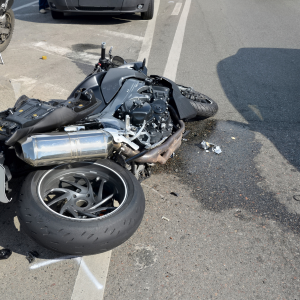How to Build a Strong Case
Imagine this. You’re on the road, obeying traffic laws, when out of nowhere, a massive truck barrels into your lane. The impact is explosive. Your life is turned upside down in an instant. You’re left with life-altering injuries and the overwhelming question of how to rebuild your life while you seek justice for the damages that you’ve suffered. How do you prove that the truck driver or the trucking company was at fault? This is where an introductory education on negligence becomes crucial.
What is negligence in truck collisions?
Negligence in tractor-trailer collisions means a truck driver or trucking company has failed to exercise reasonable care, which caused your serious injuries. Proof of negligence requires four important elements:
Duty of Care: The truck driver or trucking company was legally obligated to ensure your safety.
Breach of Duty: They failed to uphold this duty by acting negligently.
Causation: Their breach of the duty of care directly caused the collision.
Damages: You suffered serious injuries or losses as a result.
How do federal regulations affect tractor-trailer crash claims?
Truck drivers and companies are bound by strict federal regulations designed to enhance road safety. When these regulations are violated, it can demonstrate clear evidence of negligence. Let’s delve into some critical federal regulations that often come into play in truck accident claims.
Hours of Service (HOS) Regulations
Federal Hours of Service (HOS) regulations limit the number of hours a truck driver can be on the road to prevent fatigue. Drivers must take mandatory breaks and maintain detailed logs of their driving hours.
Why It Matters: If a truck driver exceeds these hours and causes a serious crash, their fatigue can be used as evidence of negligence. Checking HOS logs can reveal whether the driver was in violation at the time of the crash.
Maintenance Requirements
Trucking companies are required to perform regular maintenance checks on their vehicles. They must ensure that brakes, tires, and other critical systems are in top condition.
Why It Matters: Poor maintenance can lead to mechanical failures and serious crashes. Maintenance records can prove that a company neglected its duty to keep its trucks safe.
Driver Qualifications
Truck drivers must hold a valid Commercial Driver’s License (CDL), undergo regular medical examinations, and receive proper training.
Why It Matters: Unqualified drivers pose significant risks on the road. If a driver involved in a crash doesn’t meet federal qualifications, it strengthens your case for negligence.
Electronic Logging Devices (ELDs)
ELDs automatically record driving hours. They replace the older paper logs and reduce the chances of tampering.
Why It Matters: ELD data can provide accurate records of a driver’s compliance with HOS regulations, and help to establish whether fatigue played a role in the truck collision.
Need help navigating federal regulations?
The aftermath of a serious truck crash is overwhelming. The complex web of federal regulations can make your head spin. This is where a dedicated law firm becomes invaluable. At The Maddox Law Firm, we meticulously investigate every aspect of your case, from examining driver logs and maintenance records to analyzing ELD data and qualification files. We build a robust case that holds all responsible parties accountable and ensures that you receive the justice and compensation you deserve. Our strategy planning meetings are at no cost to you, so reach out to us today to discuss your case. When it matters, make it Maddox.






